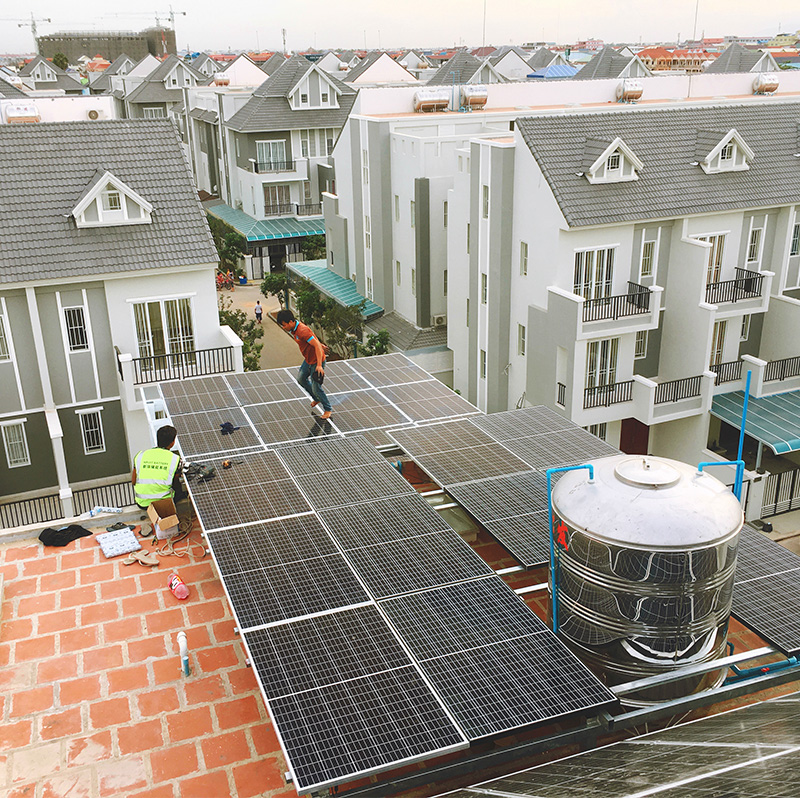A report from the REUTERS website stated most of the Philippines ‘ power outages are due to vulnerable grids. Philippines homeowners are no strangers to power outages that can cause blackouts for a few hours or up to a few days.
Generally, homeowners looked for whole-home standby generators or portable generators to keep the essential appliances turned on. However, in recent years, solar battery storage systems have increased their popularity.
Through the utilization of solar battery storage, we can control how to stabilize the electricity output. Today, we’ll talk about solar batteries and generators. By comparing them, let’s find out which one is the best for you?

Solar Battery Storage
One of the cleanest energy solutions during an outage comes from solar power. However, many families feed their solar power system into the main power grid, which will stop operating and won’t generate any energy during the outage. That’s the reason why we need to combine solar power systems and battery storage systems.
During a power outage, a grid-tied solar PV system will be shut off. Then, you will be left without power, just like your neighbors whose electricity system connects directly with the grid.
To maintain the necessary power supply when the grid goes down, installing a solar battery storage system is the ideal choice. Your system will disconnect from the grid, while your battery will start powering your home without any interruption.
Solar battery storage system stores excess energy from solar panels and saves it for later use. The solar panels will convert the sunlight into electricity during the day, and the battery will save any excess electricity and discharge during low solar output.
As a result, once residential solar battery storage systems are purchased and installed, energy generation from your solar panels becomes free, powering your appliances.
Advantages of Solar Battery Storage System
- No noise & quiet operation
- Using renewable energy & low carbon footprint
- 24/7 power supply & off-grid operation
- Reduced electricity bills
- Low maintenance
- Prompt power support during the outage
Disadvantages of Solar Battery Storage System
- Higher initial investment
- Required battery charging time
Whole-Home Standby Generator
Standby generators, also known as pad-mount generators, are permanent household fixtures installed on a concrete pad outside your home. Typically, combustion-based generators provide electricity by burning fossil fuels like natural gas or propane.
Backup generators are designed to automatically power the home when there is any power outage detection or manually turn it on when needed. The cost of generators depends on how big your home is and how much power you need for home appliances during the blackout.

Portable Generators
Portable generators are used to quickly power your home during emergencies. At the same time, it is a piece of affordable equipment that normally runs on gasoline or diesel fuels.
Choosing the right size of portable generators is important for homeowners since it is possible for them to overload. Overload will happen when you use more watts than your generators can handle, resulting in machine deterioration, fire, or even explosion.
Therefore, some people would use a home energy monitor system to capture their household’s energy consumption. As a result, a picture of how many watts each appliance is using can be shown to homeowners. Then they can properly size their portable generators usage.
Advantages of Standby & Portable Generators
- Lower initial investment than the solar battery storage system
- Can be connected to existing natural gas line for fuel supply
- On-demand backup power based on a steady fuel supply
- More flexible options with small portable generators
Disadvantages of Standby & Portable Generators
- Noisy operation
- Higher carbon footprint
- High requirement of maintenance
- Monthly fuel costs higher costs when compared to solar energy

